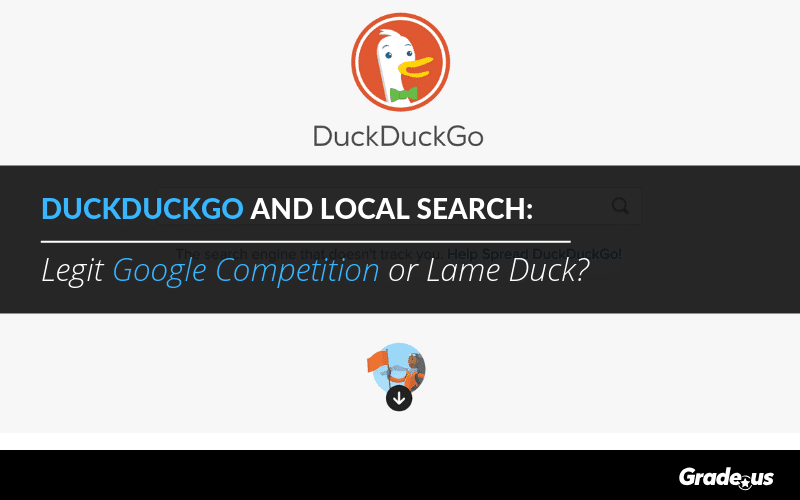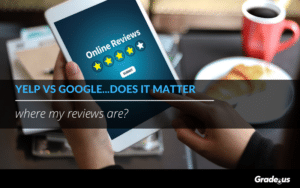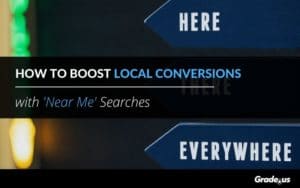There are only 4 months and change left in 2019, which means the obligatory round of "what's ahead for 2020" posts are about to start rolling down the pike.
Here's mine:
Unless they make some major mistakes, DuckDuckGo is going to get a lot more important next year, and every year after.
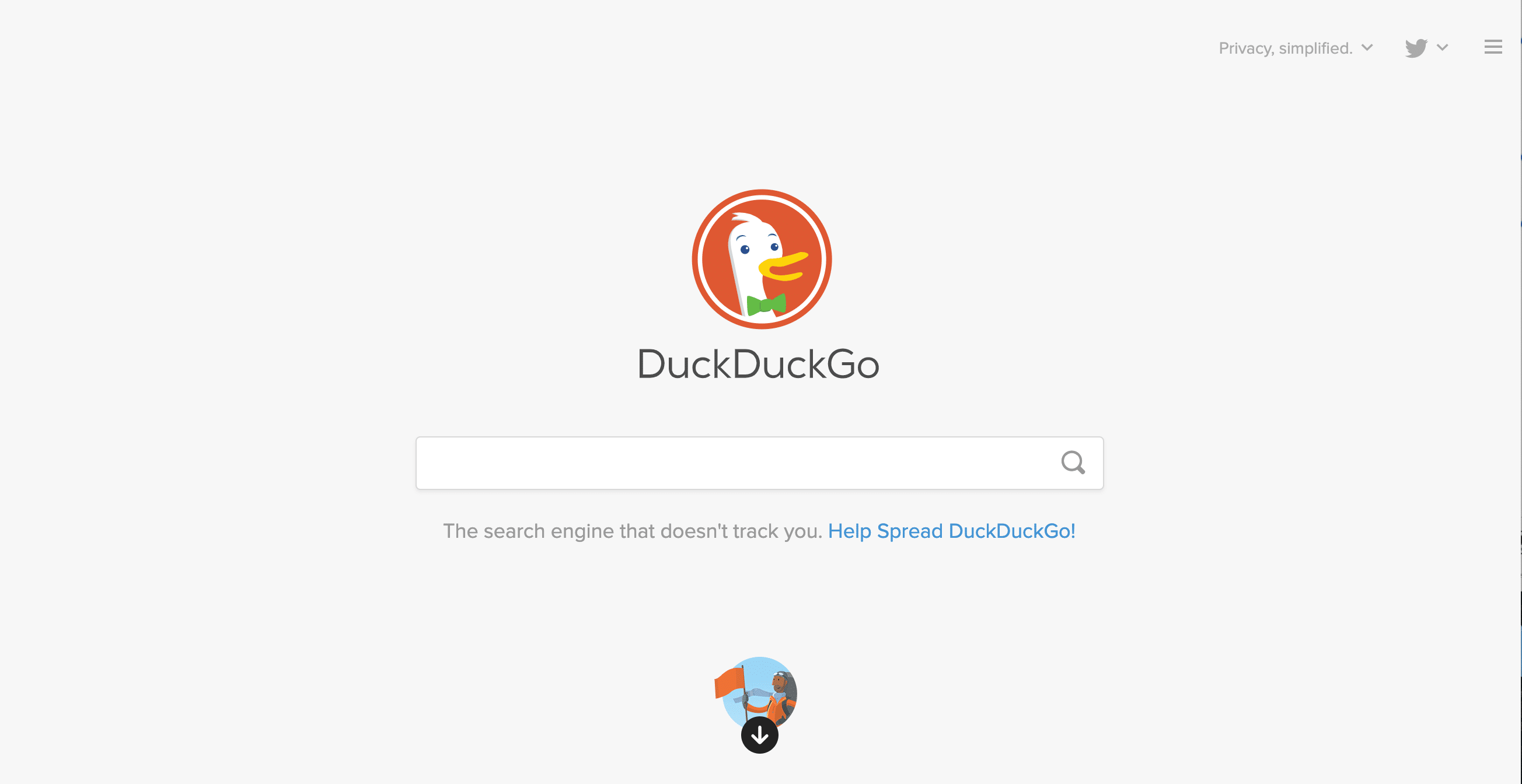
Oh, they've got a long way to go. Though I'm starting to believe Google is ripe for some sort of disruption (see this expert interview with Cori Graft to see why). DuckDuckGo isn't there yet.
If anyone's going to do it, though, they are. Maybe not to the extent that digital marketers to start accounting for it, but it’s something for the radar.
DuckDuckGo’s Market Share
Until very recently, Google had no serious competition. It didn't look like they were ever going to get any.
They're starting to nibble market share like ducks nibble bread crumbs in a lake.
There are three reasons why DuckDuckGo has the potential to become the next real contender.
- They’re now handling 40 million searches a day in July, up from 34 million in January.
- The only one to see a spike in search traffic in 2019, and the only one to gain market share.
- They’re consistently profitable, which means they aren’t going under in the immediate future.
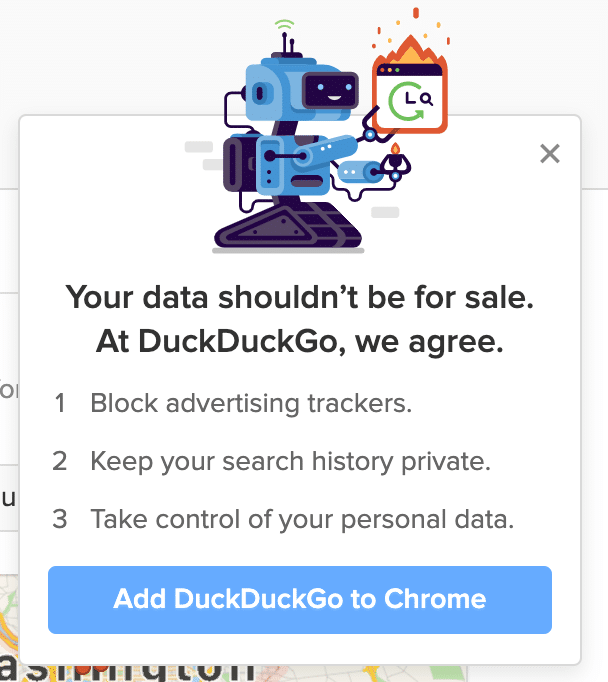
Most relevant though, they're also on the forefront of an important trend. Their entire USP is this:
Privacy. They don't sell your data.
They don't track you all over the internet. As user privacy concerns continue to skyrocket and as word continues to spread, I'd expect more people to make the switch, as long as nothing happens to destroy their reputation (see below).
DuckDuckGo Search Features and Search Quality Still Lacking
DuckDuckGo will need to step up their search game if they want to be a true competitor.
Their news results are a bit underwhelming, as they'll only give you 25 of them. Total.
Below, I ran a news results search for "Worker's Compensation Fraud." Note that some of the results aren't even current. 49 days ago for one result? 5 years ago for another? Not exactly great "news!"
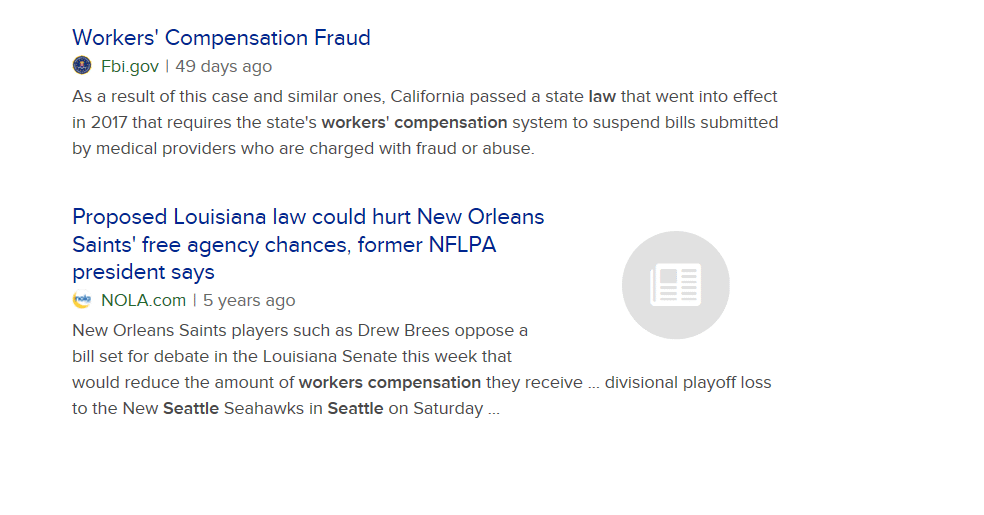
Note the distinct lack of "additional results."
Maybe the theory is nobody would read more than ten — but I do. Routinely.
And I found, in general and as an overall feeling rather than anything I have specific examples for, that my searches didn't match my intent nearly as well as Google does.
These might not be major problems for many people, but I spend 90% of my day creating content, which means lots of searches, especially news searches. It was a problem for me.
I'm not the only one who had this experience.
Spoiled as I've been by Google's level of quality, I personally started to get frustrated quickly. Frustrated enough that I switched back to Google within just two weeks.
The local results were especially touch-and-go.
For example, I recently moved to an entirely different state, and am still searching for various services. I happen to love smoothies, so I chose to search for "smoothies near me." Here’s my my side-by-side comparison between DuckDuckGo and Google.
As you can see, DuckDuckGo knows I'm somewhere in the Seattle metro area.
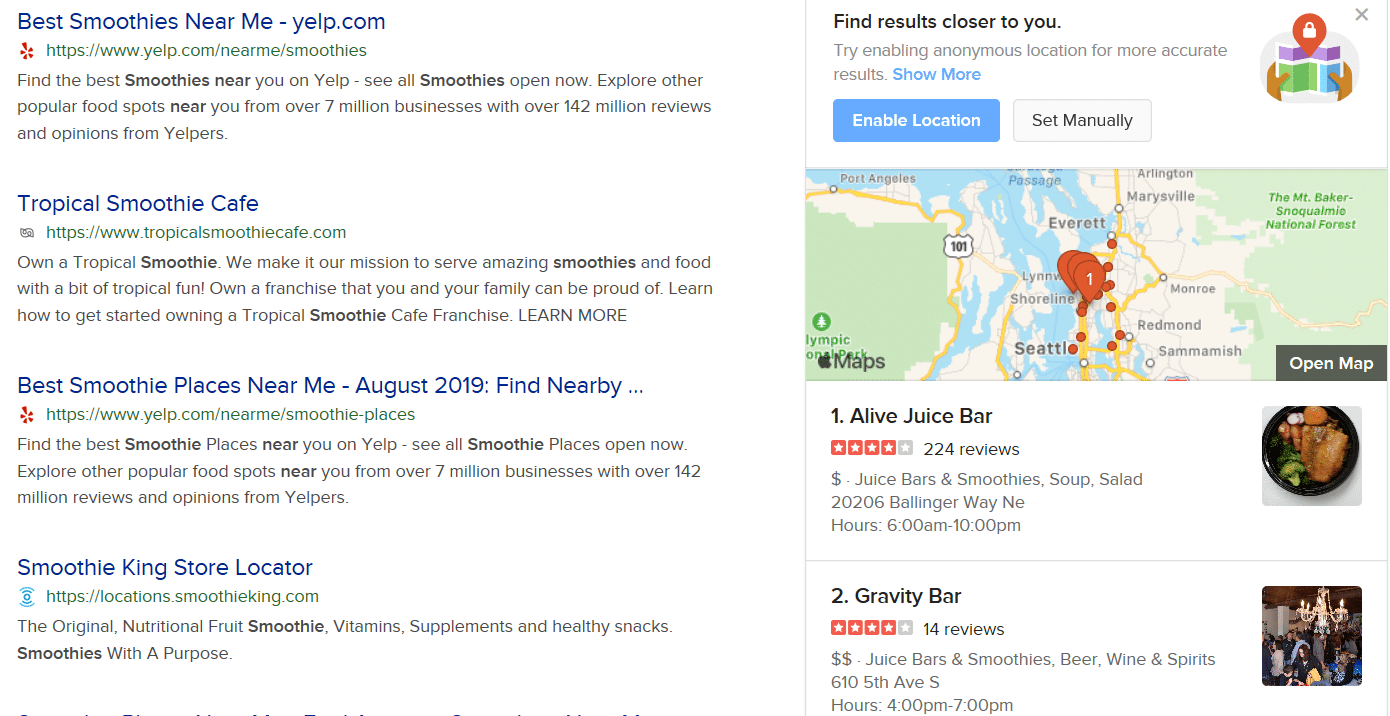
But Google actually puts the closest place right on top, 14 minutes away from my location, a short drive down a well-paved state highway. I can actually see myself making that drive.
DuckDuckGo's top result is 20 minutes away and demands a harrowing trip down an interstate I don't enjoy driving at all, or a bus trip. If I'm ever out that way, sure, but it's not much help to me if I want a smoothie for breakfast.
To any SEO specialists out there that are just getting in the game and find themselves frustrated as to why they can’t rank better in a different geo-targeted local result, this is why proximity is the primary ranking factor in their results.
Wouldn’t you rather have a hyper local practical option for your smoothies than something a bit inconvenient?
If I want to see the reviews, I've got to follow the link to Yelp, as opposed to Google's very handy pop-up. Because Yelp is, of course, its own site. And DDG doesn't have a way to create a DDG account, or leave reviews directly from DDG.

This is, of course, part of the whole devil's bargain we have with Google. Sure, they could probably tell a satellite exactly where to aim so it could shoot us from space, but the benefit lies in our ability to locate the best coffee shop only 4 minutes away.
As it turns out, I was willing to risk the whole satellite from space thing to get those really good local search results. I suspect I'm not the only one. In my opinion, DuckDuckGo's local search isn't even worth using. The profile and knowledge graph, as of right now, certainly has nothing you can claim or optimize. It’s basically Yelp by proxy.
Right now DuckDuckGo is heavily reliant on other search engines, which strikes me as a dangerous long-term strategy. They do something unspecified with those results once they get them (we don't know what their algorithm is any more than we know what Google's is), but not well enough to provide a satisfying experience.
If they really want to give Google a serious run for its money, they'll cut the apron strings and start trying to develop an algorithm and strategy that's even better than the one Google offers instead of using an algorithm that relies, even in part, on other people's substandard ones.
They may also want to start thinking of features besides privacy that could provide users with an outstanding experience. Right now they're incorporating Google-like features that don't work as well as Google's do. Not a great strategy.
Neither of these things will be easy. Usurping the throne never is.
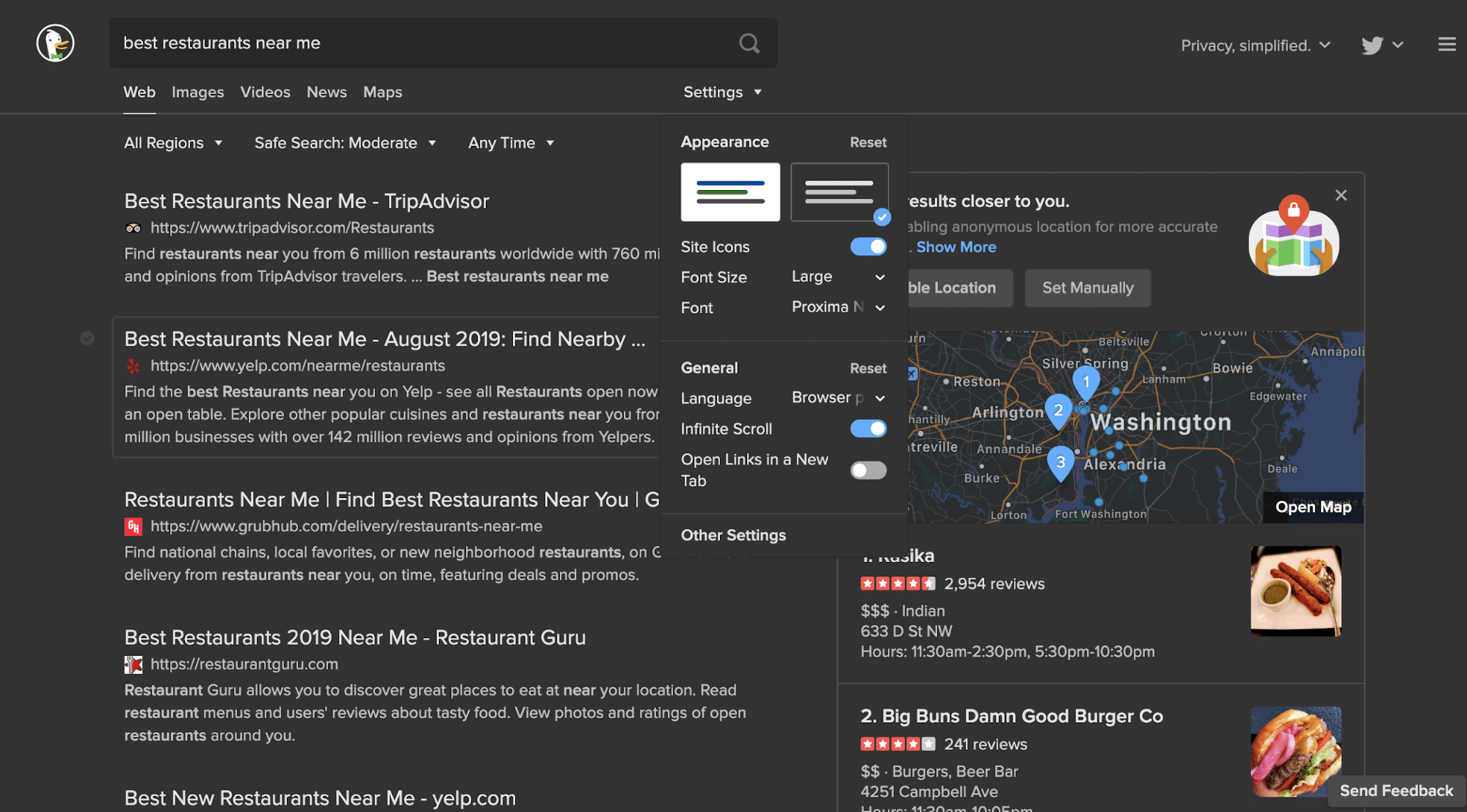
What You Need to Know About Optimizing for DuckDuckGo
First, link building plays a major part in whatever algorithm they tack on to the aggregated results they're pulling up. There are indications they don't even bother paying attention to any backlinks that don't come from highly credible sites, which means cheating your way to links continues to be a bad strategy.
Building relationships, creating content anyone cares about linking, and making good PR moves are the places to spend your energy, not "cheap" or "easy" link-building methods that don't provide any quality. Educate your clients, who may still be stuck on quantity if they understand SEO and link building at all. Because this is the direction you need to be moving in vis a vis Google's algorithm, too.
Right now, their maps results are being powered by Apple Maps, another area where they're borrowing instead of doing their own thing. They're pulling from Yelp reviews instead of offering their own review platform.
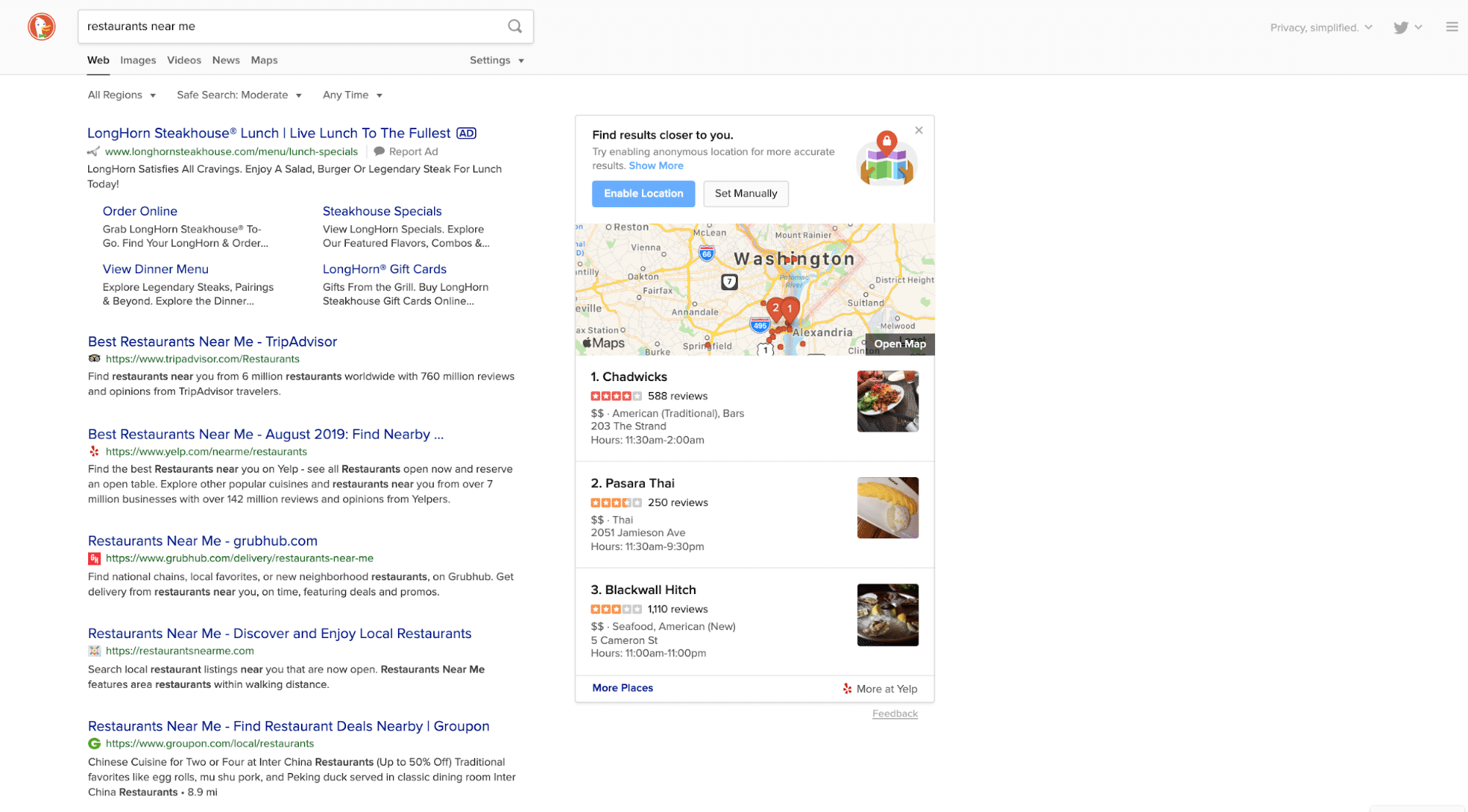
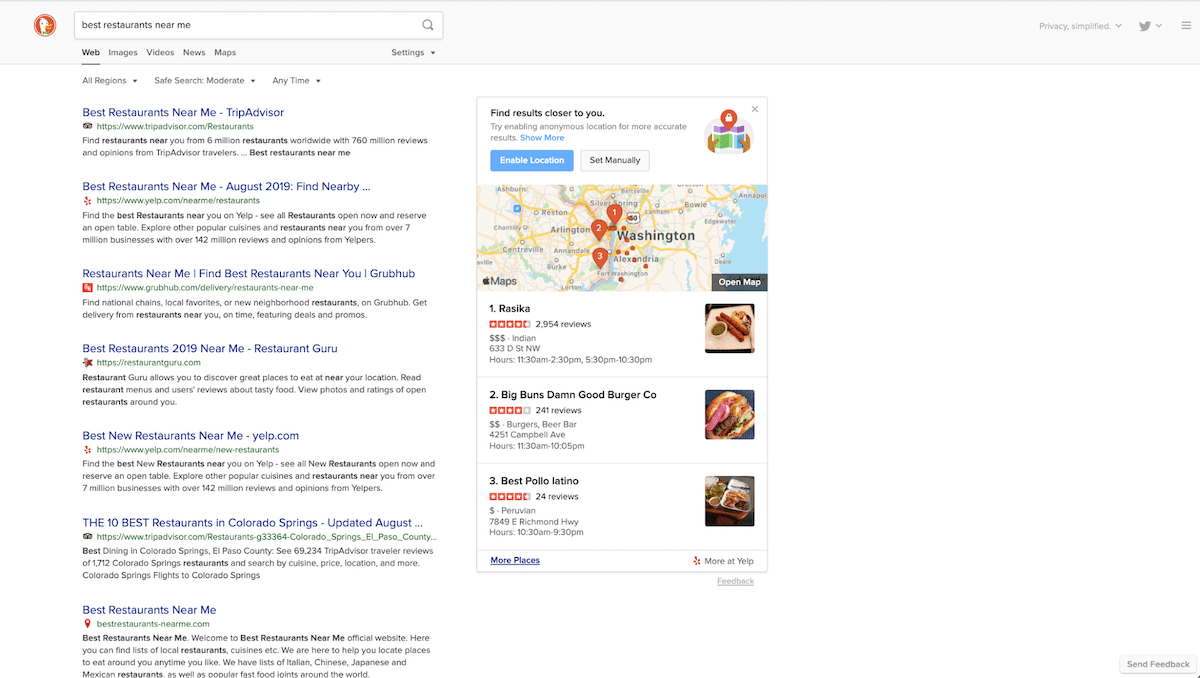
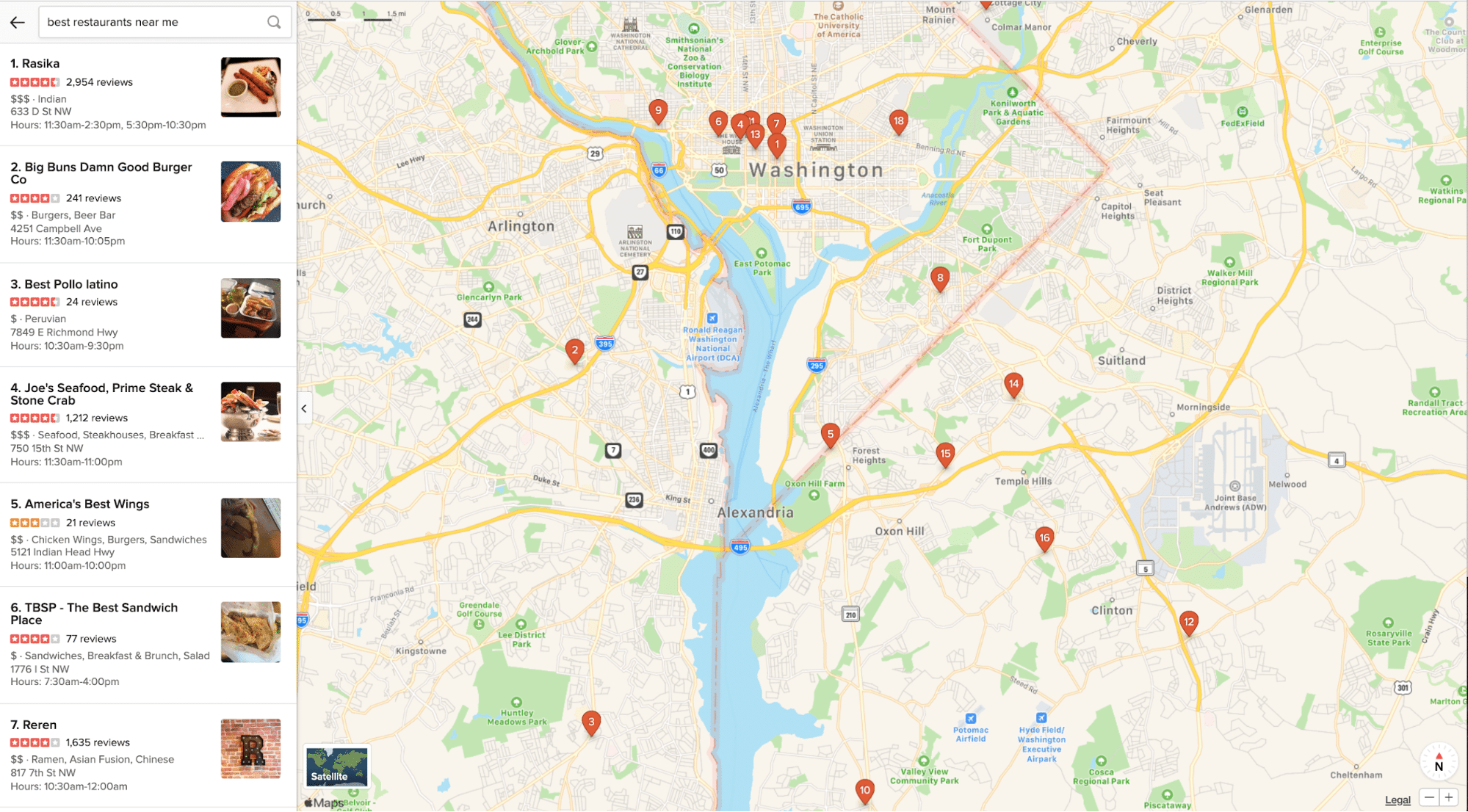
If they don't decide to create their own review platform and continue to use Apple Maps in the near future it may be smart to start directing at least a little of your review traffic in that direction, as irrelevant as Yelp has started to seem and as frustrating as their practices can be.
Finally, it may be wise to devote at least a little bit of your PPC budget to DuckDuckGo's advertising offerings. As they begin gaining market share those are going to represent some eyeballs you won't be getting from Google. Just keep in mind these ads won't be targeted, which means it will be up to you to compensate by creating ads that are as compelling as possible before you spend your money.
Caveat: DuckDuckGo may be shooting themselves in the foot
When your entire market proposition is built around privacy, you need to make gosh darn sure you're private. And there are some rumors that DuckDuckGo isn't as private as advertised.
A report from earlier this month says DuckDuckGo continues to use cookies. They may not be saving data, but those cookies still have the potential to pass information on to other sites, including Google. In fact, the "bang" search feature exposes your data directly to Google, Amazon, or whomever else you use the bang to search. That's a problem.
Your plain text search history is still available to anyone who can get access to your computer, and for some this will represent a major security concern.
In addition, there are other privacy search options that could eat into DuckDuckGo's market share before they truly get off the ground. Like SearchEncrypt, which has closed some of these privacy holes. They don't have the name recognition yet, but that doesn't mean they couldn't steal DuckDuckGo's thunder before they can manage to become a real threat to Google.

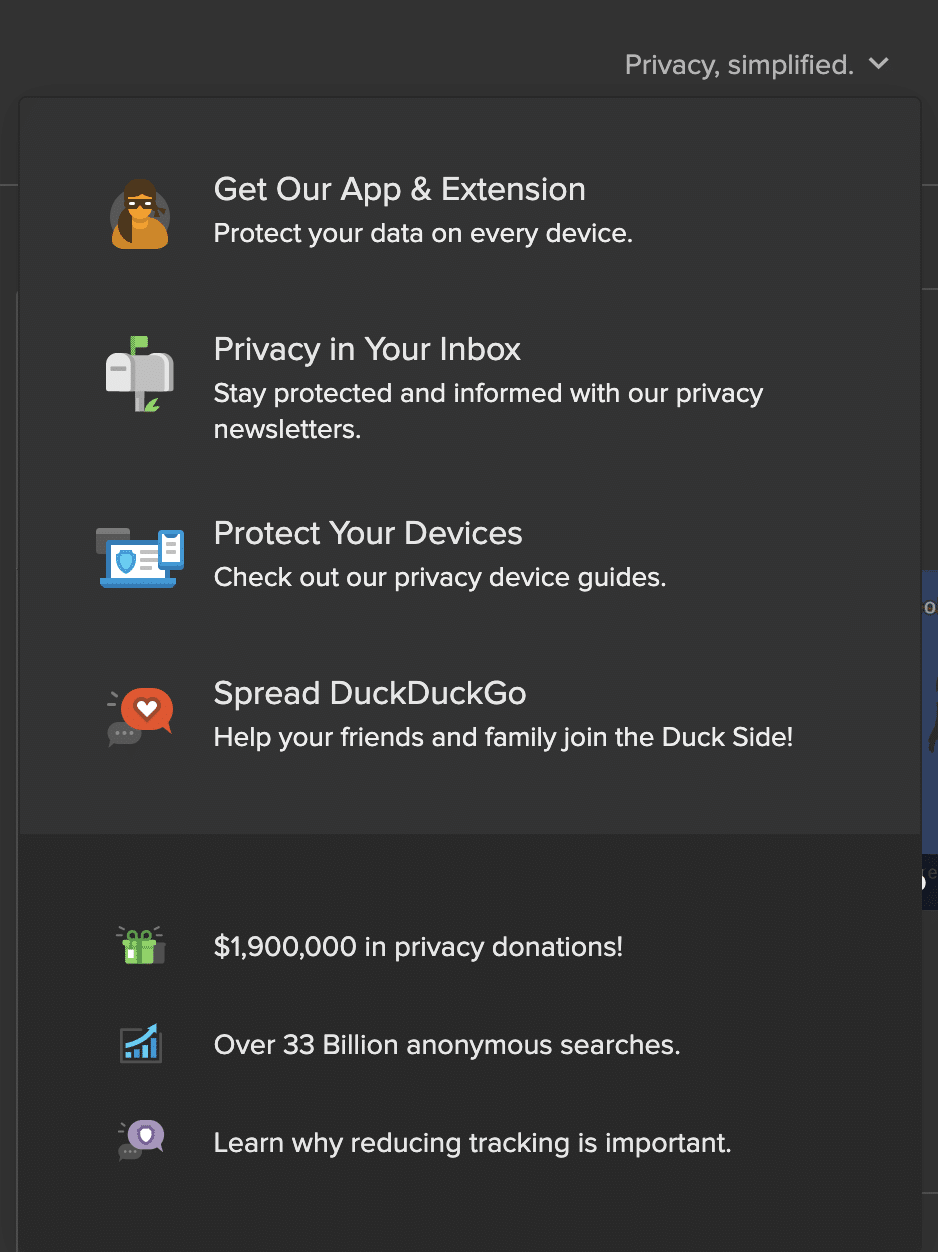
For many, these privacy holes represent esoteric issues that the average person might have too much trouble parsing to worry about. That doesn't mean DDG shouldn't worry about them. They could open the door to privacy scandals which DDG can ill afford. It would only take one major one to halt their forward momentum.
Google’s Potential Weak Spots
I believe Google could be making itself vulnerable to disruption in two important ways.
First, it's over-monetizing to the point where it's easy to see a time when only very large businesses can pay to play their game. There are only so many large companies out there. Squeezing smaller companies out means putting a cap on your ability to earn, even if the amount earned per customer looks a lot more impressive.
In so doing, they're also irritating people, and making sure they go looking for other ways to market their business, other places to spend their money so they can get their name out there.
Second, they've failed to address the very privacy concerns driving people into DuckDuckGo's arms. They are already taking some steps to do just that.
Addressing the technical side of privacy isn't enough. They also have to address the public perception that they're viciously profiting from our data, or putting us in danger. This will be difficult for them, because they've become harder to trust.
If they can manage it they could shut DuckDuckGo down before it becomes a major threat. Perhaps they could start by returning to their original "don't be evil" motto.
They could also draw more attention to what they're already doing to safeguard privacy, as well as what you can already do to safeguard it yourself without switching search engines. They're not doing a good job of the latter, because if I hadn't been specifically digging for them, I never would have known these things existed.
Final verdict?
DuckDuckGo isn't going to be a major threat to Google next year.
It does have the potential to get there within the next three to five years. And it will continue to gain users next year.
This means it's certainly significant enough to pay attention to, and significant enough to account for. To make sure you're covering your bases, make a few minor adjustments to take advantage of their growing prevalence, and keep an eye on any moves they make to solve their major challenges.
About the Author
Raney C. Hudson
Raney C. Hudson is an independent content consultant with a 10+ year track record in the digital marketing industry.

